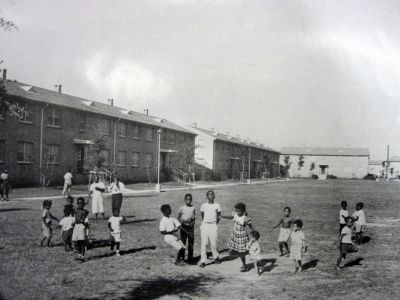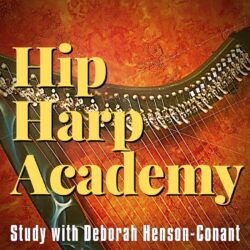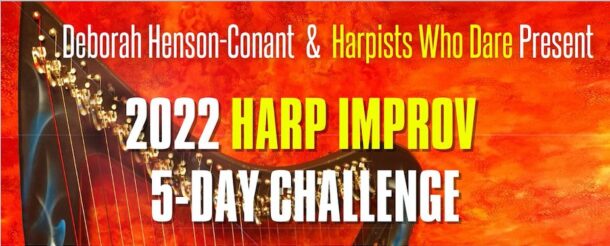“I remember…” is a series of posts about places from my childhood where I sometimes find myself today. I will be performing a solo show in one of these places, Eugene, OR, on Wed. March 30 at The Shedd Institute for Arts.
__________________________________________________________________________
Noah, a recently graduated harp student at the University of Oregon drove me through Eugene yesterday after a masterclass I gave. We passed the YMCA where I once took tumbling lessons, and pulled into a student housing complex.
I used to live here, in this same complex, 50 years ago, in 1961.
Noah parked, and we walked a little ways through the complex. I realized I was looking for things that aren’t there, that a different time is a different place. And I don’t want to lose that place I remember.
We moved to Eugene from the Sierras, my mother, new stepfather and new baby brother in 1961. They were students at the University of Oregon, and we lived in the Amazon Housing project. Rows of pale green wooden apartments, each pair of buildings – housing maybe 30 families or so – sharing a common lawn. The common space was fenced, so kids could go freely out any back door and roam this rectangle of grass.
My parents were newly married and both in school. Money was tight, so we stopped using the car and rode bikes. My new brother slept in a drawer on the floor of my room, and my main complaints in life were the growing pains in my legs, the forced-wearing of saddle shoes, my growing chubbiness and the constant skinned knees I had from falling of my bike.
At that time, Oregon had a subsidy system, called “Commodities,” for low-income people (listen to me: “Low-Income People” — what I mean is poor folks). Unlike Food Stamps, to get commodities, you’d stand in line and receive a ration of flour, butter, sugar, honey, etc.
This, my stepfather would not do. Stand in line for food. Demeaning. Absolutely not. “I will never stand in line to be handed food.” Never. So we bumbled along on the cheapest of store-bought food.
Not that I knew any different. I just remember his contempt. The sense that accepting this handout was a kind of humiliation.
One night, my parents went out and left me in the care of a younger couple: a tall, gangly white kid and his small, Asian wife. They’d carpeted their own tiny apartment with samples from a carpet store, like a multicolored checkerboard — and we sat on the floor to eat, with a candle and a low wooden table.
I waited for dinner in this exotic room. I don’t remember exactly what we ate, until she – this unusual and haltingly-spoken woman – pulled something out of the oven and brought it to me on a plate. A huge, white, steaming biscuit. On the floor between us, she placed a small bowl of butter and another of honey. The steam rose from the biscuit and played in the candlelight. I could see the irregularity of the crust, the biscuit flaking apart from itself, the delicate bronzing of the edges. I poured the honey on the biscuit. Golden. Pure. It was the most exquisite, elegant, aromatic, magical meal of my life. The biscuit, the butter, the honey.
“How did you make this?” I asked. I think I was whispering.
“Oh, it’s wonderful!” the young wife said. “It’s like a gift,” she said, “I made it free – all with these marvelous ‘Commodities.'”







I lived at Amazon for a time. I learned about what the UO was capable of as they battled the tenants there during the demolition.
Zachary — tell me more. I couldn’t even find any photos on line of the Amazon.
You really should write a book, Deborah. You have amazing and interesting memories AND you have terrific writing skills.
OK…….Christopher Alexander was someone who tried to convince UO to alter not demolish Amazon Housing. Here are some related things online about it- Google keywords “alexander visits the oregon experiment” and “the oregon experiment twenty years later”. Let me know if you find those. I might be able to put you in contact with the people arrested the day UO moved in to Amazon with dozers. St Vincent Depaul saved 5 or 10 of the buildings which were moved and rehabbed. That proved they were still viable structures. Some went to a cluster near 19th and Pearl….and others were placed near 19th and Patterson. I might have old pictures but that would take some digging. The Amazon story changed my life because I got dragged into the fight. I spent years keeping the UO from quickly dozing the Moss Villard Columbia area.
Wow, thanks Zachary! I just got home from the West Coast. I may search for my own photos one of these days and try to get some on line.
Hi Deborah, this is Vanessa Stovall’s mother — Vanessa is going to play “Baroque Flamenco” with her high school orchestra this Thursday night here in Seattle, and we are beyond excited! But now I’m even MORE amazed because thanks to your blog, I’ve learned that my family lived in the Amazon housing in Eugene during the very same time that you did~!!! I was born in 1962 and that was our residence. My brother and sister were born in 1958 and 1960 and could very well have been playmates with you! I simply cannot wait to share this with my parents and siblings; all of them will be at Vanessa’s concert except my sister, who now lives in Colorado. Also, I will ask my dad to dig out some of his pictures of “the projects” as he called them; we will gladly share them with you. In the meantime, know how much we appreciate all of your incredible composition artistry and the lessons you have given Vanessa to ready her for this concert. We’ve waited close to two years for this special performance! Grace & peace, Jennifer
Jennifer! I’m so psyched we lived in the Amazon at the same time!!!! I was in the middle of a tour and didn’t get to read your reply until just now! By now, Vanessa has taken her bows for Baroque Flamenco. Yes, yes, yes – let’s dig out the pictures. And I guess your Dad is right, they kind of were the ‘projects’ — maybe that’s why my life is still so ‘project-oriented.’ I can’t wait to see pictures of Vanessa playing Baroque Flamenco — and you guys in Amazon!
Thank you for your reply, Deborah. My parents were bowled over by this coincidence and they were witnesses to Vanessa nailing your piece. She shined and since this was the first time we’ve heard the orchestra backing her up, we were bowled over by the beauty of it! I’ve never seen an audience jump to its feet so quickly following a performance. Dad said he has never heard a better orchestration composition by a single instrument composer, high praise for you! I’ll stay on him to dig out pictures from the early 1960’s. He turns 80 in June so we’re starting to pull out all the lifelong pictures for that. Take care and thanks again for everything!
I wrote the historic document that saved Amazon for awhile. I have many pictures..if you are interested email me and I will share
This may not be relevant to your search any longer, but I found these images online in the same way I found your post – by looking for Amazon Student Housing. My family lived there around 1970 – 1971.
http://boundless.uoregon.edu/cdm4/results.php?CISOOP1=exact&CISOFIELD1=CISOSEARCHALL&CISOROOT=/archpnw&CISOBOX1=Amazon+Family+Housing%2C+University+of+Oregon+%28Eugene%
Best of luck to you!